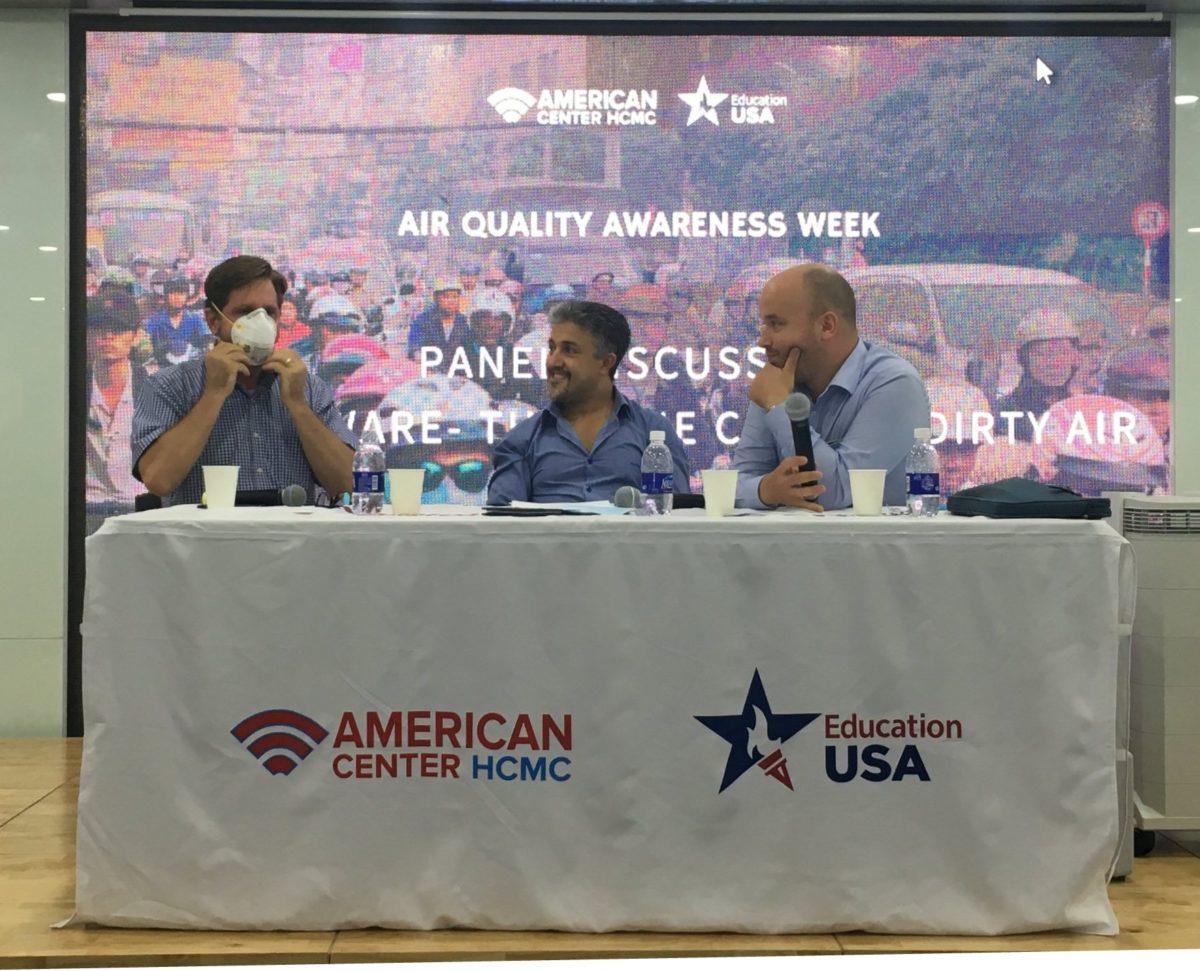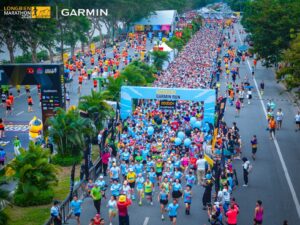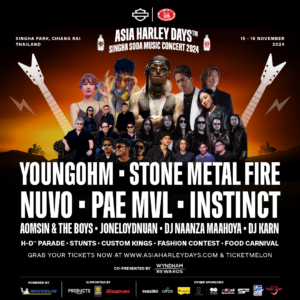Family Medical talks Saigon air-pollution with US Consul

Ho Chi Minh City, Vietnam, 9 May 2017: Family Medical Practice this week took center stage at a function hosted by the US Consul in HCMC’s American Center, where all eyes were on the city’s air as part of Air Quality Awareness Week.
FMP’s Head of Pediatrics Dr. Jonathan Halevy shared a panel with the American Consul’s staff doctor Dr. Jeremy Ostrander and IQAir Vietnam’s Mr. Aron Szabo, and turned his attention to the impact of the nation’s industrialization, traffic congestion and air pollution upon the lungs of its children.
Speaking to a hundred-strong audience at the Center, Dr. Halevy said: “One of the things that is often overlooked is how the levels of pollution in the air impact all of your body’s systems. People focus on the respiratory system – and that is crucial – however all systems are damaged by air pollutants. Even cognition is impacted, with studies showing poorer performance in subjects like arithmetic among children in nations with higher pollution rates.”
Commenting that the highly and densely populated HCMC has around five-times the pollution levels of large western cities, one alarming statistic that arose in the session was the presence in HCMC of PM2.5 pollutants. These 2.5 micron particles are absorbed into the body and are considerably smaller than the lungs’ filtration systems, and are therefore absorbed into the body.
“These particles are so small that while asthmatics may notice, few other people will notice that they are inhaling them,” said Dr. Jon. “The particles inflame and damage the tiny airways and little sacs responsible for oxygen/co2 exchange from air to bloodstream. These have considerable long term effects on the functioning of the lungs. These cause a slow, gradual destruction of lung tissue over the years, and lung function tests show people in polluted areas demonstrate poorer lung functioning.”
In an engaging question and answer session, the hundred-strong audience discussed ways in which they can exercise in the pollution of the city, with the Consul’s Doctor Jeremy Ostrander commenting that in may in fact be counter-productive. According to the doctor: “While we don’t have a lot of evidence for this, we have to rely on a mixture of common sense and indirect evidence. Most people agree that it relates to the way you breathe, and obviously you breathe less vigorously at rest. However, while exercising, you are respiring much more frequently and much more deeply, so you are taking more pollutants in. Try to eliminate those factors if you can, try to exercise in areas away from major roads for example, but it’s not easy!”
His co-panelist Dr. Jonathan agreed, commenting on the lack of large parks in HCMC and quipping that he would not run outside here.
Sadly, as Aron pointed out, moving indoors isn’t necessarily better for you either, with the indoors sometimes registering 3-5 times more pollutants than outside, with carpets, curtains, and even painted walls polluting the inside of our house. Stressing the need for ventilation, he commented that it is really important for body to recover while sleeping, this is unfortunately a time in which we are constantly exposed. He went on also to talk about the importance of cleaning air-conditioning units, as these often bring both mold and dust into our houses.
The impact of pollution on our daily lives was discussed at length, with Aron drawing comparisons between Vietnam and China, and discussing the impact of wearing masks has on decreasing the inhalation of pollution. Dr. Jonathan, who rides a motorbike to his district 1 clinic each day agreed, and a demonstration of the correct way to apply a mask was performed.
According to Aron, both the quality of the masks – in which the cloth masks commonly used are only able to filter out large particles, and the surgical masks which are designed to protect patients rather than doctors – are not particularly effective for rush hour commuters in HCMC. In addition to this, he discussed the way in which most masks are not worn correctly, allowing air to enter, and drastically decreasing their efficacy.
Much of the conversation involved comparisons between smoking and outdoor pollution, with Dr. Jonathan citing a 2010 HCMC study that showed peak hour levels of benzene gases at 250 micrograms per cubic liter, which is both five times higher than a typical western city, and approximately equates to four cigarettes for each hour spent in traffic.
However, as pediatrician Dr. Jonathan noted, ultimately there is nothing worse than a parent could do for a child’s respiratory health than to smoke around them. Commenting that children and infants are at the most risk, and acknowledging that more than half of Vietnamese men are smokers, he acknowledged that this meant that more than half of Vietnam’s kids are exposed to cigarette smoke. “Parents always say ‘I would do anything for my kids’. This is not true. Most won’t stop smoking for them.”
This was the third of a three part series devoted to air quality put on by the American Center.
———————————————————-
Family Medical Practice, the first foreign-operated, multi-disciplinary medical provider in Vietnam, opened in Hanoi in 1994 and owns and operates five modern clinics based in Hanoi, Danang and HCMC. FMP is the only private medical provider in Vietnam with such national coverage. All Family Medical Practice clinics have fully equipped ambulances described as “state-of-the-art emergency medical units” on stand-by 24 hours a day.
For more information on the Emergency Medical Response Center, please contact:
Ms. Susan Wu on susan.wu@vietnammedicalpractice.com
Ms. Nhu Dang on marketing@ vietnammedicalpractice.com
Ms. Giang Vu on mktg.assistant@vietnammedicalpractice.com



